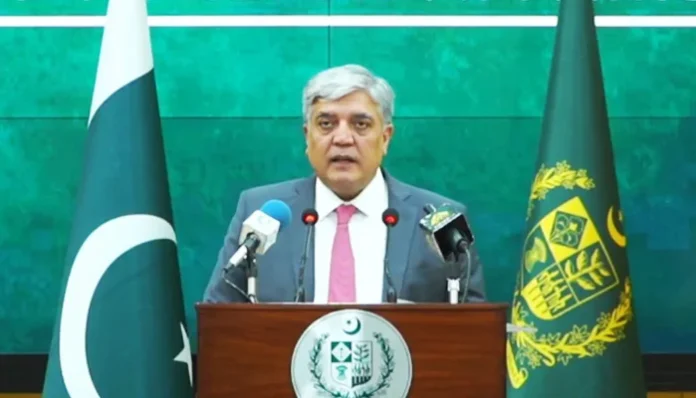FO Spokesperson highlights Indian involvement in destabilising Balochistan
ISLAMABAD: Pakistan on Thursday reiterated that India’s false victimhood narrative could not obscure its role in fostering terrorism on Pakistani soil and its state-sanctioned oppression in Indian Illegally Occupied Jammu and Kashmir (IIOJK).
Foreign Office (FO) spokesperson Shafqat Ali Khan, in his weekly press briefing, asserted that India’s involvement in fomenting terrorism in Pakistan and destabilising Balochistan was evident.
Referring to Indian complicity in global assassination plots, he stated that India had been engaged in such unlawful activities not only in Pakistan but across the region. “Instead of blaming others, India should reflect on its own record of orchestrating targeted assassinations, subversion, and terrorism in foreign territories,” he remarked, highlighting India’s failure to condemn the recent attack on the Jaffar Express in Balochistan.
Unwarranted Assertions Over Jammu and Kashmir
The spokesperson expressed alarm over the increasing frequency of unwarranted statements from Indian leadership regarding Jammu and Kashmir. He reminded that it was India that had taken the Jammu and Kashmir dispute to the United Nations in 1948 and, therefore, had no right to blame the Security Council or its former members for the subsequent resolutions.
“The repetition of baseless claims cannot alter the fact that Jammu and Kashmir is an internationally recognised disputed territory, whose final status is to be determined by its people through a UN-supervised plebiscite, as mandated by the relevant UN Security Council resolutions,” he stated.
Khan stressed that a peaceful resolution of the Jammu and Kashmir dispute, in line with the aspirations of the Kashmiri people and the UN Security Council resolutions, was crucial for lasting peace in South Asia. He reiterated Pakistan’s stance on constructive engagement and result-oriented dialogue to resolve all outstanding issues, including the core dispute of Jammu and Kashmir.
“India’s rigid approach and hegemonic ambitions have held peace and stability in South Asia hostage. The anti-Pakistan narrative emanating from India vitiates the bilateral environment and obstructs prospects for peace and cooperation. It must stop,” he emphasized.
PM’s Visit to Saudi Arabia
Providing an update on Prime Minister Shehbaz Sharif’s recent four-day official visit to Saudi Arabia, Khan shared that the premier held a productive meeting with Saudi Crown Prince Mohammed bin Salman. The two leaders discussed strengthening bilateral ties in trade, investment, energy, and security.
The prime minister expressed gratitude to the crown prince for the Kingdom’s consistent support for Pakistan. He also welcomed the signing of a treaty on the delimitation and demarcation of the Kyrgyz-Tajik border, marking the resolution of a long-standing dispute.
“We firmly believe that this significant development will open new avenues of cooperation and progress in the region,” he stated.
Torkham Border Reopening and Deportation of Illegal Foreign Nationals
On the issue of the deportation of illegal foreign nationals, Khan clarified that the deadline remained unchanged. He reiterated Pakistan’s call for Afghan authorities to take decisive action against Tehreek-e-Taliban Pakistan (TTP) and Daesh-K, which have been involved in carrying out terrorist activities in Pakistan.
He also confirmed that the Torkham border had been reopened until April 15, as efforts continued to seek a long-term resolution to the issue.
Regarding reports of Pakistani nationals being included in certain visa restriction categories, the spokesperson dismissed social media speculation, stating that both the US State Department and the Foreign Office had refuted such claims.




